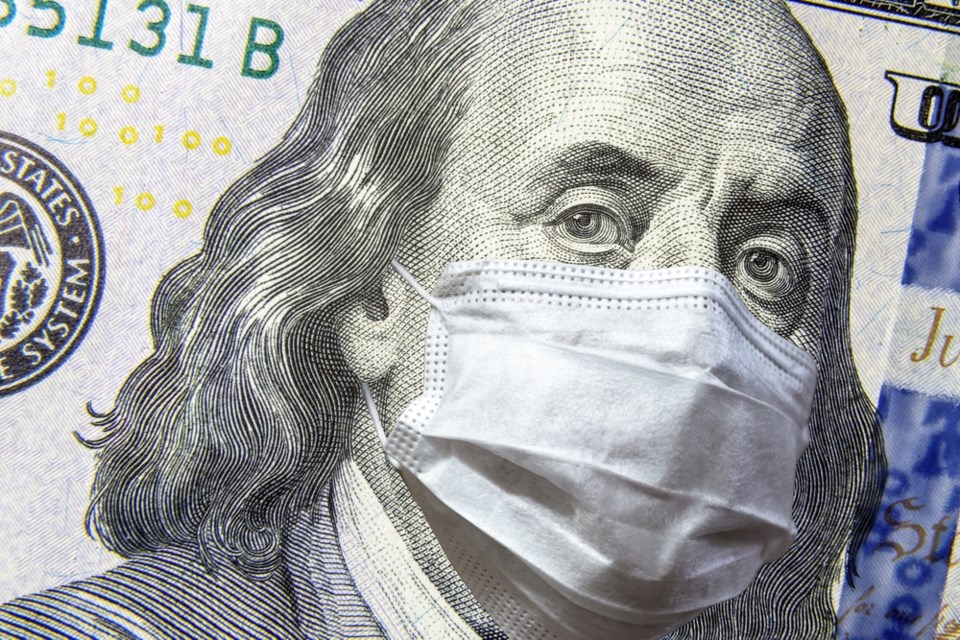Texas has experienced a 2,000 percent increase in unemployment claims since the coronavirus pandemic two months ago.
That increase was noticed by analysts from WalletHub, a personal finance website, in a recent report “States with the Biggest Increases in Unemployment Due to the Coronavirus.” Using data from March 16 until April 27, WalletHub analysts compared the increases in unemployment claims from all 50 states and the District of Columbia. They ranked Texas in the top 20 for the most affected by unemployment last week and in the top 40 for those affected by it since the start of the COVID-19 crisis in mid-March.
Oklahoma and New Mexico both ranked in the top 10 for unemployment claims last week and near the top 20 since the pandemic began. Louisiana has seen a nearly 4,500 percent increase in unemployment, WalletHub analyst found.
In fact, the COVID-19 pandemic has wiped out all the job gains since the great recession, according to WalletHub’s May 7 report.
Liberal states have also experienced a higher increase in unemployment claims compared to red states, which abide by the bootstrap philosophy. About 33.5 million Americans have lost their jobs. Nearly 2 million are from Texas.
WalletHub’s report also included a list of personal finance experts answering two key questions: Will the $2.2 trillion emergency relief package be enough? And what can people do if they don’t qualify for stimulus money?
Jason Beck, an associate professor of economics at Georgia Southern University, claimed the emergency relief package won’t be enough to keep us at full employment. “But it will certainly help,” he said.
As for the stimulus amount, Ahmed White, a professor of law at University of Colorado, Boulder, argued that it wouldn’t be enough to help American workers, “especially for the millions who have no significant savings.”
“The amounts pledged per individual or household,” White said, “are inadequate to make up for lost wages, particularly should the stand at orders for some time and the problem of unemployment increase — scenarios that both seem likely, at least at this moment.”
But not in Texas.
White said that if a person doesn’t qualify for stimulus money, then they’re obviously facing some serious problems. He recommended checking out public and private emergency relief benefits and possibly disability, SNAP and TANF, all of which are difficult to qualify for if you were working prior to COVID-19.
Some of the other experts took the stance that people need to prepare better for emergencies and build up a savings account, which is a tall order for the 33 million unemployed workers to accomplish.
Joseph Alutto, a retired distinguished professor from Ohio State University, pointed out that they do have the opportunity to reflect on the choices they have made and prepare for different futures. “There is an important lesson in current events that many who lived through earlier depressions learned the hard way,” he said. “You never can tell when events out of your control will impact the physical, emotional and economic health of every person. Being certain that personal “saving” is part of any individual recovery plan is something that could be reinforced by government policy.”
Another expert, Christopher Hayes, a labor historian at Rutgers, The State University of New Jersey School of Management and Labor Relations, said only adults who didn’t qualify for a stimulus check were individuals who broke six figures, and married couples making more than $198,000, “in which case, I hope you have been saving,” Hayes said. “Those people, if they still have jobs, should stop and think about how fortunate they are.
“The other group is college students who are listed under 24 years old who are listed as dependents on someone else’s tax return,” he continued. “I would tell them to cast their nets far and wide, work hard, don’t expect it to necessarily return much, prepare for disappointment, and keep at it. But also be realistic about what is not working out for you and be OK with moving on.”
Leave it to a historian to make the most sense.




